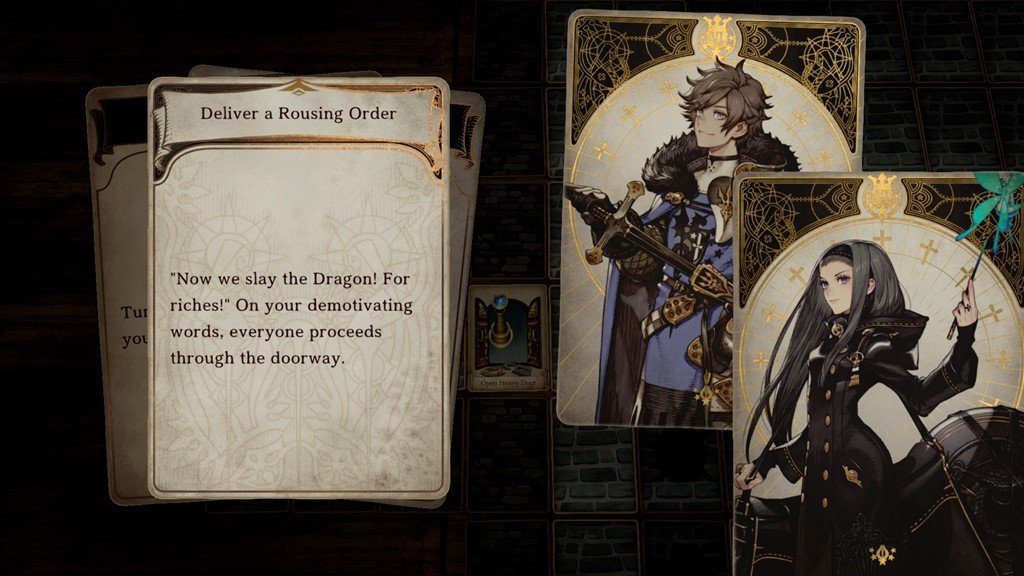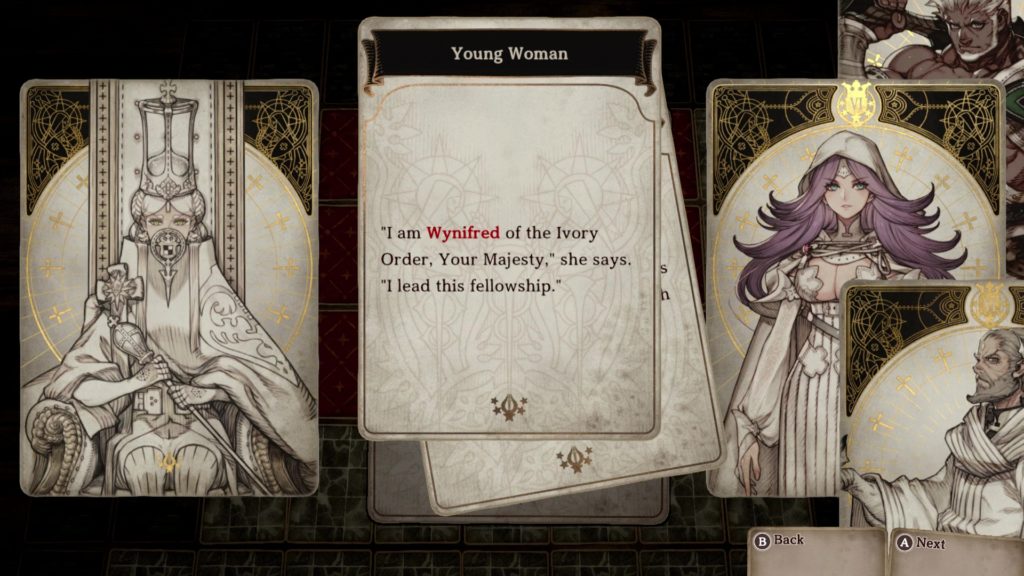Thank God Voice of Cards isn’t a mobile game
Speaking at the Tokyo Game Show (as reported by Siliconera), Taro Yoko and the other developers of Voice of Cards: The Isle Dragon Roars revealed that the upcoming card-based RPG (which we previewed here) was originally pitched as a mobile game — but executive producer Yosuke Saito convinced Yoko that he’d be better off making it as a consumer title.
Interestingly, the reason Yoko pitched the game as a mobile title and the reason Saito rejected it as such might initially seem to be at odds with one another — Yoko’s intention was to create a “smaller, compact mobile game”, but Saito pointed out that such things are nowhere near as prevalent these days.

Instead, the expectation for mobile games is for them to be ongoing, constantly developing, continually updated social titles, and since Yoko is already involved with two such titles (SINoALICE and Neir Re[in]carnation) it would likely have a negative impact on his overall workload if he were to add a third to the mix. By comparison, small-scale passion projects for home computers and consoles are definitely on the rise — including many supported by Square Enix’s own Collective initiative, such as FuturLab’s PowerWash Simulator — and Voice of Cards very much fits into that category.
Saito’s (very correct) assertion raises an interesting point about the evolution of mobile games over the years. While once Yoko would have absolutely been right to pitch Voice of Cards as a mobile title, the rise of in-app purchases and the enduring popularity of gacha mechanics means that it arguably no longer has a place on today’s phones and tablets — particularly if he wanted to tell a self-contained story.
Standalone, self-contained games still exist on mobile devices, of course, but you don’t have to scroll far down the user reviews to find mobile users complaining about developers “abandoning” their games if there aren’t regular monthly updates, new content and new ways for players to spend their money. Were Voice of Cards to be a mobile game, it would find itself trapped into having to continually add new content and stories, rather than acting as a completely self-contained title.

At first glance, this seemingly wouldn’t be a terrible idea for Voice of Cards, since the card-based nature of the game makes it ideal for a sort of “modular adventure” setup, where new “card packs” could be added to the game on a regular basis.
But one has to take into account the team making it and their own workload; the game’s Japanese narrator Hiroki Yasumoto pointed out that Voice of Cards releasing as a standalone title was of benefit to the team as a whole; making the game more niche allows the team to make it more refined and polished.
There’s nothing stopping them putting out some DLC to expand the game over time, of course — indeed, it seems there will be some DLC characters at the very least — but Taro Yoko’s best work comes when he has time to let things stew for as long as necessary, then explore all the possibilities in as much detail as possible. Were he tied to a regular schedule of game updates, we might not see his best work — and that’d be a real shame.

More than anything, though, I’m grateful that Voice of Cards’ interesting gameplay won’t be sullied with gacha mechanics. While the game is presented using cards, the demo version available now indicates that this is largely an aesthetic choice; there’s not actually a lot of randomness in the game. Maps are predefined and gradually revealed, characters’ hands of cards are fixed based on their level, and story scenes unfold as pre-scripted narrative sequences, with occasional choices to make.
In other words, despite the implication of a pack of cards having a degree of randomness in there, Voice of Cards in theory shouldn’t lock players out of any content based on luck and/or arbitrarily defined “drop rates” for rare cards. In turn, it’s not exploiting the addictive nature of gambling to extract more money from players; instead, it is, as we remarked in our preview, simply making use of a deliberately abstract form of presentation in order to stoke the fires of the imagination.
And thank God for that, I say. Voice of Cards is shaping up to be an absolutely lovely game, and to see it sullied with obnoxious modern-day monetisation practices would be a great shame indeed. So while Taro Yoko is, without a doubt, an artistic genius — let’s be grateful that there are occasionally people around to keep some of his ideas in check, eh?
Join The Discussion
Rice Digital Discord
Rice Digital Twitter
Rice Digital Facebook
Or write us a letter for the Rice Digital Friday Letters Page by clicking here!
Disclosure: Some links in this article may be affiliate links, which means we may earn a small commission if you make a purchase after clicking on them. This is at no additional cost to you and helps support Rice Digital!
- Letter from the Editor: passing the torch - June 30, 2023
- Super Woden GP 2 is looking promising - June 30, 2023
- Inti Creates is making a 32 bit-style Love Live action platformer - June 26, 2023






